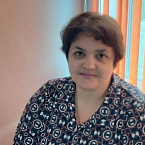Theory and Practice of Cross-Cultural Communication
In this course, students will study the basic processes of cross-cultural communication and characteristics of communicative styles in various cultures. It allows them to communicate in the multilingual and multicultural society reaching the goals of personal and business communication successfully. The recommended level of language proficiency is English Independent User (B2) or English Proficient User (C1). The course is directly related to all other courses of the programme that need knowledge, skills and abilities referring to the sphere of cross-cultural communication. Besides, it contributes to the Company Internships.
The goal of mastering the discipline
On completion of the course, students should be able to perform communication in the spheres of everyday life, education, business and management within the context of cross-cultural peculiarities.
The skills you get
- Students are able to:
- identify and analyze the linguistic-cultural peculiarities
- behave taking into account the principles of cultural relativity
- communicate in the multinational world adapting their own behaviour to the standards of non-native cultures
- present an argument for applying the strategies of domestication and foreignization
- prove the necessity of correcting the target text on the basis of the original text analysis
Topics covered
- Cross-Cultural Communication as an Academic and Applied Discipline
- Particular Aspects of Cross-Cultural Communication
- Dialogue of Cultures: Everyday Life, Education, Business, Management
When instructed
- 2nd year, 1st semester
List of references and sourses
1. Golub O.Yu., Tikhonova S.V. Theory of Communication. Moscow, IPR Media, 2016.
2. Guzikova M.O., P.Yu. Fofanova. Basics of Cross-Cultural Communication. Ekaterinburg, UFU, 2015.
3. Ieronova I.Yu. Introduction to Theory of Communication. Kaliningrad, Immanuel Kant Baltic Federal University, 2006.
4. Ter-Minasova S.G. Language and Cross-Cultural Communication. Moscow, Lomonosov Moscow State University, 2008.

 Phone
Phone
 Mail
Mail